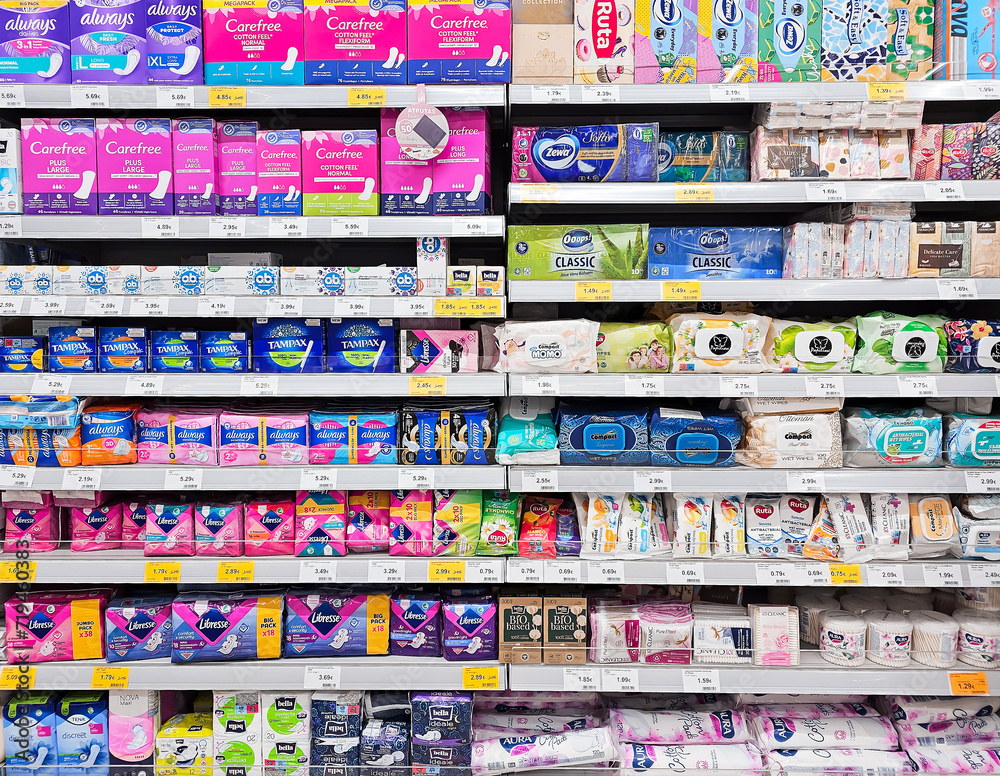The absorbency of menstrual products has been misrepresented for decades, until now.
A new study revealed that the advertised absorbency of an average sanitary product was misleading due to their testing methods inaccurately replicating menstrual blood.
Researchers from Oregon Health & Science University recently tested the absorbency of sanitary products like tampons, pads, menstrual cups, discs and period underwear against human blood rather than the typical saline solution. The study was published in the BMJ Sexual & Reproductive Health Journal in August 2023.
This is the first known study to test period products with blood since absorbency standards were set in the 1980’s.
The research was sparked in an effort to better diagnose heavy menstrual bleeding (HMB) after doctors noticed an increase in patients using menstrual cups and discs, according to the paper published on BMJ.
“I’ve been using a cup for over a year now and it works so much better than a pad or whatever. I hated it at first like it took some time getting used to it, and then it was just habit and so necessary,” said Justyna, a menstruating individual with HMB.
According to Scientific American, the research suggests that doctors may be underdiagnosing heavy periods due to the inaccurate absorbency label on most sanitary products. The standard measure for HMB is based on how many tampons or pads a menstruating individual uses per day, six being the average.
“I used maybe, four or five pads a day if I was at home. If I was out, I used tampons, maybe, like, the same, four or five or sometimes six,” said Justyna.

According to Women’s Health Concern, one in four people with a uterus experience heavy menstrual bleeding. The negative impacts it has on quality of life can be linked to iron deficiency anemia.
“When I was younger and first experiencing my period, I was so terrified, like, when I saw the big clots, I would cry sometimes. Now, I’m just used to it,” said Justyna.
Research projects like the Gynaecology Quality Improvement Collaboration have dedicated their resources to understanding and educating people on HMB and its related conditions.
According to the Toronto-based groups’ website, they reported that abnormally heavy periods can, “lead to significant disruptions in people’s daily activities and lifestyle, impacting their physical, emotional and social well-being.”
Justyna says she often gets headaches and feels fatigued during her heavy period, which almost always negatively affects her work or school day.
Women’s health has been underfunded and stigmatized for generations leaving gaps in the knowledge of their reproductive health, which ultimately affects overall health. The medical community should continue to prioritize and research what these biological processes mean for women and any menstruating individuals around the world.
